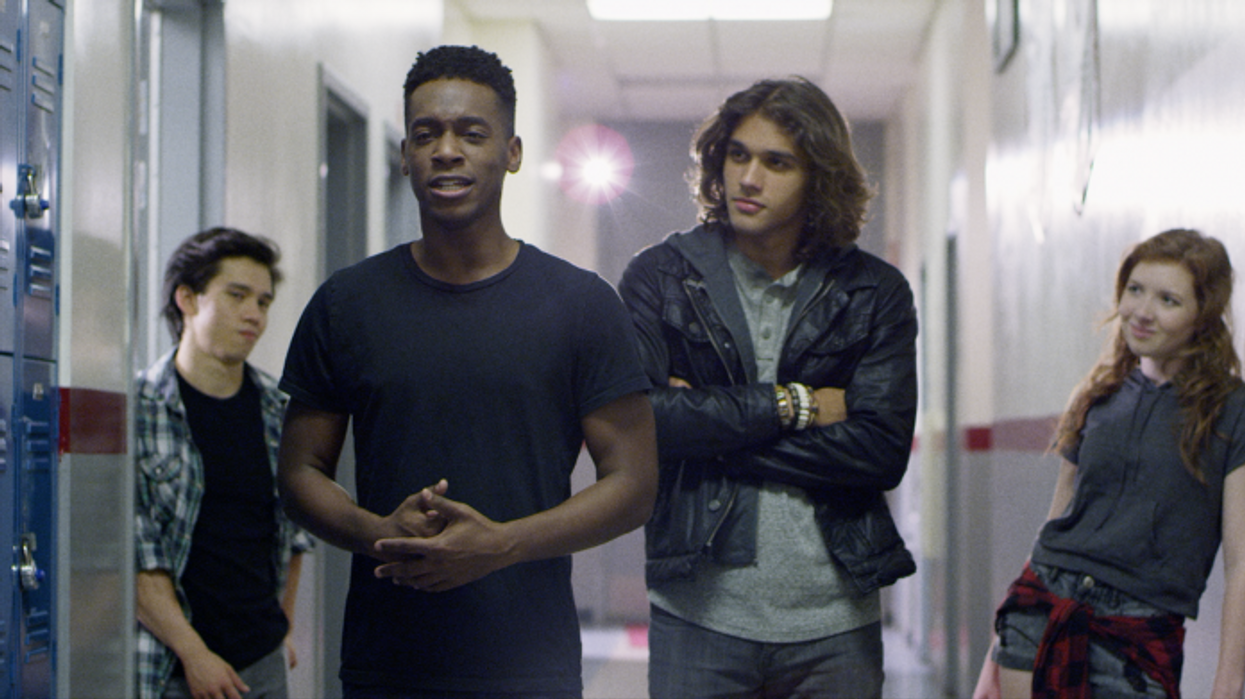6 Steps to Conducting a Low-Budget Musical
These tips from a music film veteran will get on you on your way to producing the indie version of Jersey Boys that you've surely been dreaming of.

Music runs through director Jenn Page’s work like notes on a scale. She has directed music videos for the likes of Billy Ray Cyrus, musical features, and even musical numbers at The 4th Annual International Academy of Web Television Awards.
As if these projects don’t already pose enough unique obstacles, Page recently took on the challenge of directing an indie musical, complete with an indie budget and an indie shooting schedule (a.k.a. too low and short). The resulting project, The Breakout: A Rock Opera, premiered last week at the Dances With Films Festival in Los Angeles, so we thought it was the perfect time to ask Page to share some insights from the front lines of musical filmmaking.
1. Love the music
This one may seem obvious, but Page warns not to underestimate how much you will hear the music. "Don't do a musical just because you want to do a musical. You're going to hear these songs over and over on set and during editing and then at screenings...you’ve got to love them."
When The Breakout’s producer and songwriter Chris Edgar first approached Page, she was skeptical. "I'm thinking the music is going to be awful because it's indie and it's rock opera," she recalled.
Fortunately, she was immediately blown away. "It was completely way above what I expected," she said. "It was really fun and beautiful. I was in the minute I heard the songs."
"I am very snobby about acting. But with this, I had to put singing first."
2. In casting, focus on the voice
Of course, as soon as Page was on board, the first step was casting, which has additional considerations in musicals—especially this one.
The film is a coming-of-age tale set in a high school where the protagonists are teetering on the edge of rebellion. (Think of a way edgier High School Musical meets Degrassi Jr. High.) Thus, the team needed to find actors who looked like quirky high school students but were mature enough to perform under the high pressure of an indie timeline with little rehearsal.
But all of those considerations had to come second to singing. Page admits, "I am very snobby about acting and if I get to cast a movie, my actors are going to be top-notch but, with this, I had to put singing first." After seeing "pretty much anybody who said they could sing," Page put together a cast of singers that each had the whole package.
When you're in her shoes, keep in mind that a good director can coach a fine performance out of someone, but can't necessarily teach them to sing. Therefore, voice is not something to compromise on when casting a musical.

3. Work with a DP who can dance
Given the production's constraints, Page knew that she would have to find a talented cinematographer who had experience with motion. She found that in Collier Landry, who helped create a sense that the camera was dancing along with the characters in the musical. In fact, there is only one scene in the whole film that is shot on sticks; for everything else Landry straps his camera to a Ronin and shoots in motion. (Page is usually a Blackmagic shooter, but Landry preferred to use his new RED for this project.)
How did Landry pull it off? Mostly by going with the flow. Page didn't always have the luxury of pre-production to rehearse scenes, and in some cases didn't even know what the location would be until the last minute, making proper blocking difficult. She recounted: "We would get on set and the first thing I would do is work out with the team of actors like, let's kind of blast this, figure it out."
Landry would watch. Then, he would get on the Ronin and "find different angles and just kind of shoot it like a music video." According to Page, their attitude was "let's just shoot it and get what we get and then do it again."
"Let your actors be free spirits. Guide them, but let them know that this space is for them to play."
4. Cast your choreographer
Some of the scenes in the film were more formally choreographed than others. In one particularly interesting hospital scene where the cast's movements mimic marionette puppets, Page cleverly used her choreographer, Sarah J. Eagen, on screen as a doctor, so she could help the actors through their motions after a very limited rehearsal time.
5. ...Or be your own choreographer
On most days, Page lacked a choreographer entirely, and though some of her actors had dance training, she did not. Therefore, she had to push outside of her own comfort zone to show the actors what she needed from them, and to trust that they would take her ideas to the next level. She described, "With the blocking, it was a lot of, 'Here's what I kind of want you guys to do but feel the music and go with it.'"

6. Be playful on set
The success of Page's methods have to do with both trusting her actors' abilities, but also letting them play. "I think a lot of what I have learned as a director is to let your actors be free spirits," Page said. "Guide them, but let them know that this space is for them to play. They trust that I'm going to tell them if it works or not."
These deceptively lighthearted wise words are useful to any director working with actors, musical or otherwise.











